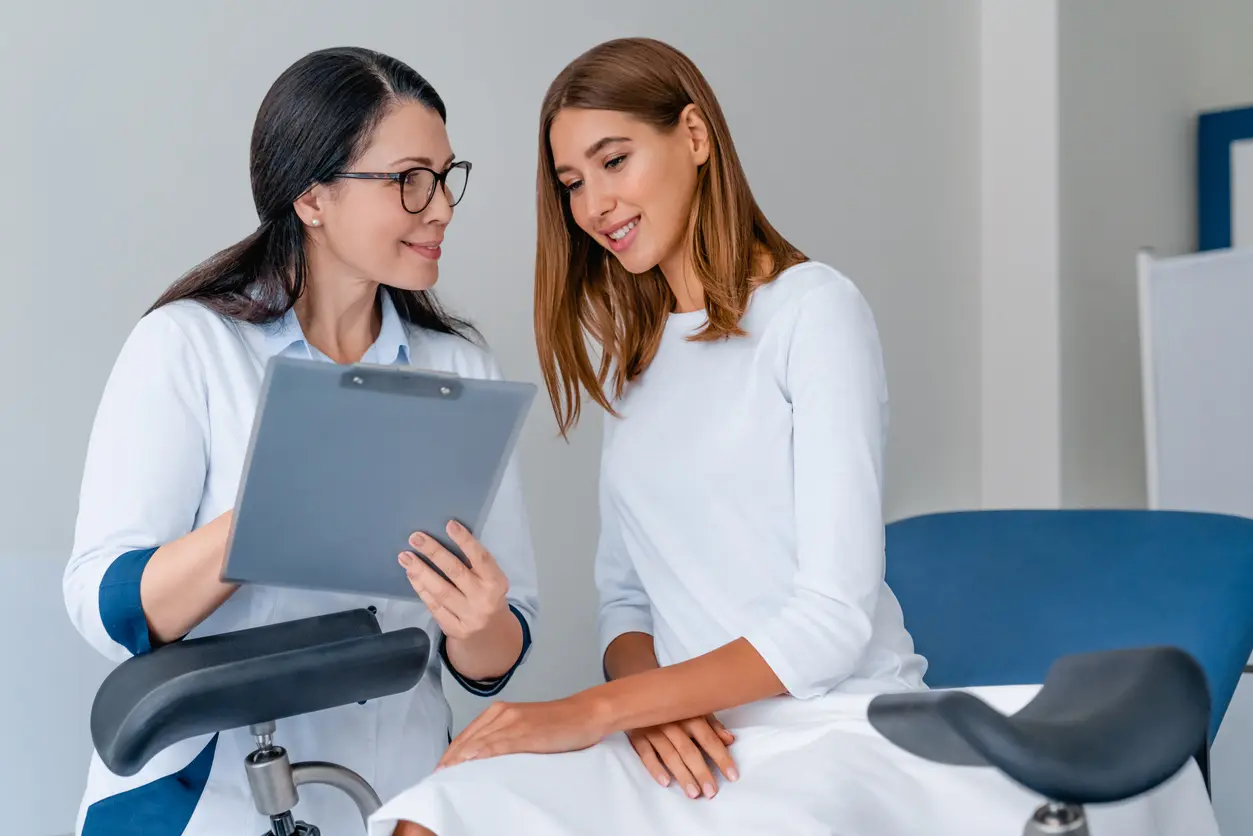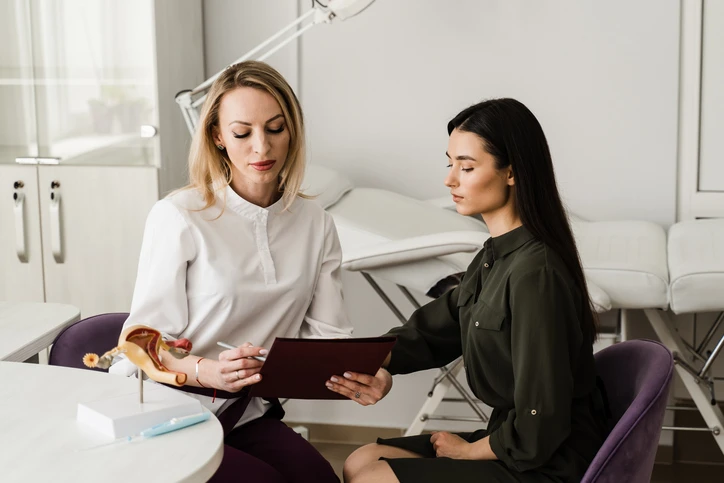Helpful Links
Request ConsultationYour intimate life is a vital component of your total body health, so if you’re experiencing pain during intercourse, also known as dyspareunia, it can severely disrupt your quality of life. We get it, and that’s why Aguirre Specialty Care specializes in correcting and resolving this very important problem which can affect 10-20% of reproductive-aged women in the general population.
There are many possible causes of painful sex including endometriosis, fibroids, large labia, scar tissue, vaginal dryness, and pelvic muscle spasms to name a few. Identifying the source of the problem is key in developing an effective treatment plan. If you have pain with intimacy, with or without penetration, the first step is identifying a specialist experienced in female sexual dysfunction and sexual health.
At Aguirre Specialty Care, we see women who have suffered from painful sex for many years who have never sought treatment, or worse, have brought it up with their health care provider only to be dismissed or misdiagnosed.
Fortunately, medical director and board-certified urogynecologist Dr. Oscar A. Aguirre is one of the world’s foremost pelvic health experts, possessing decades of experience and the highest level of training, who offers treatments to help women achieve optimal intimate health at every stage of their lives.
Treatments for painful intercourse depend on the cause, but may include:
- Vaginal lubricants
- Vaginal dilators
- Pelvic Floor Physical Therapy
- Local or systemic hormonal therapy
- Trigger point steroid injections
- Platelet Rich Plasma (PRP) Injections
- The O-Shot® with PRP
- The FemiLift™ Laser Vaginal Resurfacing
- Laser-Enhanced O-Shot (LEO®)
- Reconstructive & Cosmetic Vaginal Surgery
- The Real Mommy Makeover™
FAQs: Pain During Sex Treatments in Denver, CO at Aguirre Specialty Care
What does Pelvic Physical Therapy do?
Pelvic pain often is due to the muscles of the pelvic floor being too tight or in spasms. The pelvic floor is essentially a set of muscles shaped like a bowl that support the bladder, rectum, bowel and uterus. There are many issues that can lead to spasms of the pelvic floor muscles, including but not limited to: trauma from physical abuse or assault, childbirth injury or a tail bone injury from a fall. Also, anxiety/stress, other pelvic pathology such as interstitial cystitis, endometriosis, etc., can be contributing factors. This causes a condition called myofascial pain. When these underlying conditions exist, then sex is painful which leads to an involuntary contraction of the pelvic floor muscles while trying to have sex. This leads to worsening pelvic floor muscle spasms, thus a vicious cycle ensues. Treatment requires eliminating the underlying pathology, but also relaxing the pelvic floor muscle spasms with physical therapy. Here, a specially trained physical therapist uses her hands to perform internal and external manipulations of the pelvic floor muscles, which are accessed through the vagina or rectum.
What does local estrogen therapy do?
As women age, their hormonal levels decline prior to ever entering menopause. The decrease in estrogen levels affects the vagina long before hot flashes or other symptoms of peri-menopause set in. This results in less blood flow, less exudate and thus less lubrication and sensation, resulting in vaginal dryness and uncomfortable or painful sex. Simply applying local, non-systemic estrogen to the vagina will improve vaginal health to a healthier, plush and more lubricious state. Local estrogen comes in many formats: creams, tablets, ovules, and rings.
How can BioIdentical Hormone Replacement Therapy help?
When the bigger effects of menopause set in, then bioidentical hormones including estrogen, progesterone and testosterone could be prescribed for overall health benefits. This may be sufficient to improve vaginal health status, but it’s not uncommon to require additional vaginal estrogen therapy.
What do PRP injections do?
Platelet Rich Plasma has been used in medicine for over 20 years. Derived from the patient’s own blood plasma, PRP is concentrated blood plasma which contains four to six times the number of platelets and growth factors normally found in blood. Its components facilitate cell-proliferation, neuro-angiogenesis, and stimulation of uni-potent stem cells which is vital to tissue repair and regeneration. In an office setting, PRP can be safely injected into scar tissue to promote regenerative healing and thus treat painful conditions.
What does the O-Shot do?
The O-Shot uses platelet-rich plasma (PRP), a concentrated portion of your very own blood, to stimulate healing. The O-Shot gently injects PRP into the clitoris and anterior vaginal wall to stimulate healing and revitalization to enhance sexual sensation and comfort while decreasing urinary incontinence, vaginal dryness and other concerns. There is no downtime with the O-Shot, and since it uses your own blood, there’s almost no risk of side effects.
What does the FemiLift treatment do?
FemiLift is a CO2 laser that resurfaces the entire circumference of the vaginal wall, stimulating new cellular growth for a wide range of improvements, including increased vaginal lubrication, tightness, improved urinary incontinence and enhanced sexual sensation for both partners. There is no downtime with The FemiLift treatment, making this non-surgical and non-hormonal treatment a convenient solution for many women. It’s a popular option for women who can’t or don’t want to use estrogen therapy.
What is the Laser Enhanced O-Shot, or LEO?
The LEO combines The FemiLift CO2 laser vaginal resurfacing with The O-Shot for a synergistic boost of revitalization and benefits.
What is The Real Mommy Makeover?
The Real Mommy Makeover encompasses a variety of personally tailored treatments that are geared to enhance a woman’s appearance and sexual wellness. Depending on your needs, The Real Mommy Makeover can include labiaplasty surgery, breast enhancement, FemiLift, O-Shot, liposuction, CoolSculpting® and many other treatments.
How can I get started with treatment for pain during intercourse?
It’s easy! Simply call 303-322-0500 or request a personal consultation online today.







